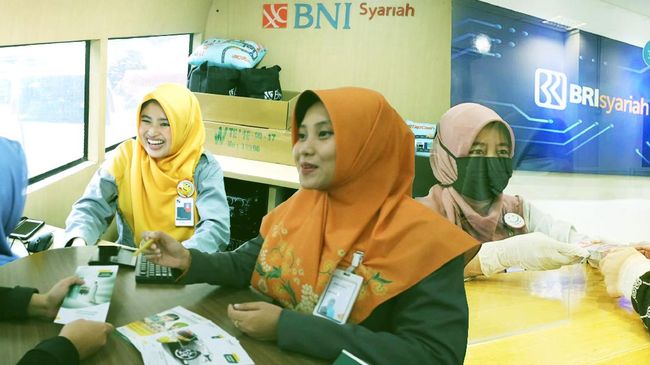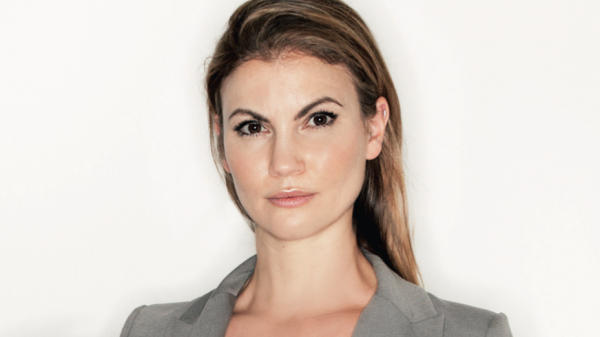Jakarta, CNBC Indonesia– PT Bank BRISyariah Tbk (BRIS) share price back corrected again, even the correction happened early on trading Thursday (22/10/20) namely minus 6.81% touching the lower auto reject level (ARB) at the level of Rp 1,300 / share.
Even at the close of trading yesterday, the queue for BRIS shares waiting at the ARB level at the price of Rp 1,300 / unit amounted to 1.22 million lots or Rp. 159 billion, indicating that the correction will occur again this Friday (23/10).
IDX data noted that this correction continued the sharp decline in BRIS shares on Wednesday’s trading which is also subject to a maximum lower limit of 7% decline, at the price of IDR 1,395 / share, the impact of the price cash offer (share purchase offer by the controller for the merger of a BUMN sharia bank) BRIS shares which are only in the range of IDR 781 / share.
The price of Rp. 781 / share was obtained from the fair price valuation of BRIS by the Public Appraisal Service Office (KJPP) Suwendho, Rinaldy and Partners. The CNBC Indonesia Research Team assessed that the current BRIS price was far above its normal price, so there was a correction.
BRIS is currently in the process of merging to become a survivor bank by accepting the merger of two other state-owned sharia banks, namely PT Bank Syariah Mandiri (BSM) and PT Bank BNI Syariah (BNIS) with an effective target of completion on February 1, 2021.
With the correction in the price of the BRIS shares touching the ARB level for two consecutive days, it certainly made investors wonder what should be done.
What are the prospects for BRIS shares, and about where BRIS shares move further in the middle of this merger process?
The correction to BRIS ‘shares was none other than because according to KJPP the fair price was only in the range of Rp. 781 / share.
Indeed, after the soaring price of BRIS shares with market value valuation compared to book value (PBV, price to book value) it is already classified as premium, namely 2.42 times.
So when KJPP released that the fair price was only IDR 781 / share, the market immediately responded and BRIS’s market price moved towards its fair price.
Even after the merger, BRIS’s book value will be eroded again due to KJPP’s valuation for BSM’s fair price with a PBV of 1.64 times and BNIS with a fair price at PBV of 1.48 times higher than BRIS’s fair price with a PBV of 1.45 times.
This shows that the fair price valuation of BRIS is proportionately cheaper than the valuation of BSM and BNIS so that the current PBV of BRIS will be eroded.
According to the calculations of the CNBC Indonesia Research Team, the consolidated book value of BRIS has the potential to be eroded to Rp. 499 / unit which reflects a PBV of 2.5 times at the current price which is considered more expensive when compared to the average PBV of the banking industry at 1.5 times. .
However, it should be remembered first, KJPP’s fair valuation for BRIS shares at a price of Rp. 781 / share is the valuation per June 2020 assuming that BRIS’s business activities are sustainable (going concern).
This means that the fair valuation of BRIS is as of the second quarter of 2020 and not the current valuation in October.
Of course the October valuation has changed, and this valuation is the valuation of BRIS going concern without accommodating the business prospects of BRIS which will later be merged into the largest sharia banking in Indonesia and have bright business and growth expectations.
Furthermore, it needs to be remembered, although later on, after the merger, the book value of BRIS may erode.
However, later on, BRIS ‘earnings per share will also have the potential to increase because BSM and BNIS are more merged profitable compared to BRIS.
At its current position, with a net profit of Rp. 117 billion, the annual earnings per share (EPS) of BRIS shareholders is Rp. 24 / unit.
Once merged, the total net profit of ‘Bank Amanah’ (the new name of the merged bank from market reports) will be IDR 1.1 trillion or if annualized it will be IDR 2.2 trillion, which represents an EPS of IDR 53,8/ unit or increase of 124,16%.
The EPS represents the market value valuation compared to the net profit (PER) of 24.16 times, which is still more expensive when compared to the banking industry average of 10.4 times.
Even so, even though the valuation is above the industry average using both PBV and PER methods, pgrowth prospects sharia bank merger results it is this brilliance that causes many investors to categorize BRIS as growth stock aka stocks with very fast future business prospects.
This is because the syariah bank resulting from this merger will later dominate the Islamic banking market share in terms of assets, financing, and collection of Third Party Funds (DPK).
Thus, if investors want to keep these stocks in the long run, it is still very attractive.
But when you are not an investor but a person trader with timeframe short to medium then it is good to go out first.
The reason is, currently BRIS is in a downward trend after falling to its ARB level for 2 consecutive days indicating a further correction trend.
CNBC INDONESIA RESEARCH TEAM
(trp/trp)
– .


